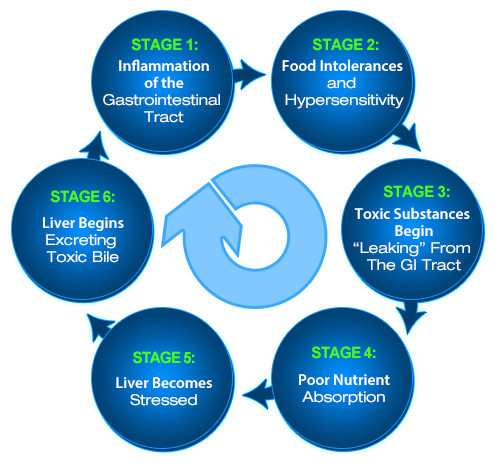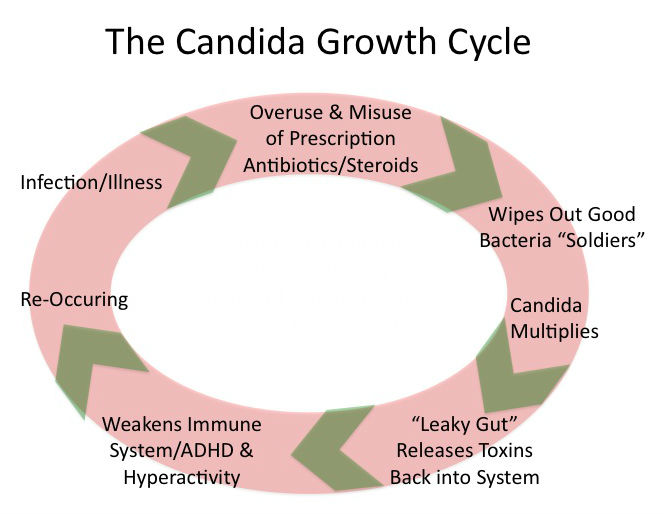What Makes Candida Go Wild?
An opportunity. Candida is naturally opportunistic and will quickly take over its environment if given the chance.
A few common health disorders which promote Candida overgrowth include:
- An inflamed and leaky gut
- A toxic and overburdened liver
- Use of antibiotic drugs, steroid medications, and antacids
- Compromised immune system (e.g. cancer treatment)
Once Candida gets the signal, it can quickly move beyond its natural environment (large intestine), infiltrate cells, create immune-sensitivity and encourage a whole-body inflammatory response.


Also, eating too many foods rich in potassium (vegetables and fruits), without adequate protein (specifically animal products) and salt, can cause the ileocecal valve to weaken, allowing Candida to migrate from the large intestine to the small intestine, and wreak further havoc on other organs of the body.
Once Candida becomes a systemic problem, starving the yeast with a sugar-free diet isn’t enough. And anti-fungal drugs only scrape the surface of an infection (if at all, with the rise of drug-resistant Candida).
